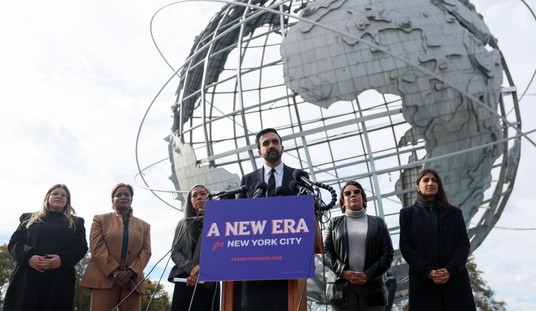
Published November 5, 2025
Zohran Mamdani’s upset victory in the New York City mayoral race has reverberated far beyond City Hall — triggering an intense media backlash, sharp partisan rhetoric in Washington, and urgent questions about what his brand of democratic socialism will mean for the nation’s largest city. This feature draws together coverage and commentary from Townhall, Fox News and the Daily Mail, and places those reactions into political context and consequence.
The win and the speech that followed
Mamdani — a young, progressive state assemblyman who ran on deep housing, transit and social-service agendas (rent controls, expanded public transit, childcare and healthcare-oriented reforms) — capped his insurgent campaign with a fiery victory speech that many on both left and right said departed from the calmer, retail-style tone of his campaign. Critics argued the speech’s combative energy risked alienating moderates; supporters said it was an honest, unabashed rallying cry that reflected a coalition of working-class and marginalized voters who feel left behind.
CNN commentator Van Jones was among those who publicly worried that Mamdani’s “character switch” on the podium might hurt his ability to broaden support — a view that set off a heated media fight and forceful defense of Mamdani from commentators who said Jones misunderstood the tenor of modern populist politics. That exchange — amplified across outlets — illustrates how electoral victories now produce instant, polarized narratives about tone and strategy.
A Washington flashpoint: Speaker Johnson’s rhetoric
Within hours of the result, House Speaker Mike Johnson framed Mamdani’s victory as proof the Democratic Party had become a vehicle for socialism, invoking images of national ideological drift and warning of “big-government” outcomes he said would harm New Yorkers’ quality of life. Johnson’s messaging seeks to nationalize the mayoral race as a warning sign for the Democratic coalition, tying a local progressive win to broader policy fears in swing districts and among moderate voters. Townhall’s coverage emphasized that line of attack.
That Republican framing has already produced concrete policy talk in Congress: some House Republicans are floating punitive measures aimed at curbing federal funds to the city should Mamdani follow through on policies they view as outside mainstream norms — legislation that one outlet labeled the potential “MAMDANI Act.” Whether such measures could pass, or whether they’d be legal or politically viable, remains uncertain; the proposal is nevertheless an early example of how a municipal election can become federalized almost instantly.
The “civil war” narrative and media polarization
Several outlets and pundits — including the Daily Mail — framed Mamdani’s ascent as sparking a “civil war” within the Democratic Party: establishment moderates versus an energized progressive base. That framing captures real fissures (e.g., endorsements and internal disagreements among Democratic leaders), but it risks exaggerating short-term discord into a permanent rupture. Political coalitions frequently reconfigure after surprise wins; whether this represents tectonic realignment or a temporary clash of styles will depend on policy outcomes, governing competence, and the party’s ability to absorb new energy without alienating swing constituencies.
Meanwhile, former President Donald Trump’s commentary — warning of punitive funding decisions and framing the speech as “dangerous” — highlights the political utility of casting Mamdani as an existential threat to fiscal or public-safety norms, messaging that could resonate with suburban voters and donors while further heating partisan rhetoric.
What’s at stake for New Yorkers — and for national politics
At the municipal level, the stakes are straightforward: policy choices on policing, housing, transit subsidies, and budget priorities will directly affect residents’ daily lives. If Mamdani pursues aggressive rent-control policies, expansive municipal services, or significant reallocation of public-safety dollars, New York will become a high-profile case study — invoked by advocates and opponents alike — about the feasibility of progressive municipal governance in a megacity.
Nationally, Mamdani’s tenure (and whether he governs effectively) could either embolden similar progressive candidates in other cities or provide a cautionary tale used by opponents to argue against democratic socialist policies. The speed and intensity of the reaction from both conservative leaders and mainstream media figures suggest that Mamdani’s administration will be watched closely for symbolic and tactical lessons.
The early headlines are not the whole story
Initial coverage has emphasized tone, partisanship and the spectacle of reaction; governance, however, is measured in the slow accumulation of policy decisions and administrative competence. Two crucial variables will shape longer-term narratives: (1) Mamdani’s ability to build working relationships with city agencies, unions and state and federal partners, and (2) the policy trade-offs he makes — balancing bold promises with the realities of municipal finance. If he moderates to govern, critics may claim he sold out; if he doubles down, opponents will paint the city as a testing ground for policies they deem risky.
 Implications
Implications
Here’s a detailed look at how Johnson’s claim — “Mamdani is proof the Democrats are the Socialist Party” — reshapes the meaning, tone, and implications of the entire story.
🧭 1. Shifting the Feature’s Focus — From Local to National
Originally, the feature framed Mamdani’s victory as a New York City transformation story — a test of whether progressive urban policies could deliver results.
But once Speaker Mike Johnson entered the conversation, the narrative broadened dramatically.
Now the question isn’t just “What will Mamdani do for New York?”
It’s also “What does Mamdani’s win mean for America’s political identity?”
In effect, Johnson nationalized the story.
His statement turned a local mayoral election into a symbolic referendum on the Democratic Party’s ideology.
The feature, therefore, now functions on two levels:
-
Local: How Mamdani’s administration could reshape New York City.
-
National: How Republicans will use that example to define the Democrats heading into 2026 and beyond.
⚖️ 2. Framing the Democrats’ Internal Conflict
In the feature, the Daily Mail’s “civil war” narrative becomes even more potent once Johnson’s words are factored in.
His statement draws a clear line between:
-
Progressive Democrats (like Mamdani, AOC, and Jamaal Bowman) pushing a socialist-leaning policy agenda, and
-
Moderate Democrats who fear being branded as radicals by association.
This creates a feedback loop:
-
Mamdani’s win emboldens progressives.
-
Johnson’s reaction amplifies conservative alarm.
-
Moderates are forced to distance themselves, widening the internal party divide.
So, the feature evolves from a story about a progressive win to a snapshot of ideological realignment within American politics — with Johnson’s soundbite serving as the dividing headline.
🏛️ 3. Elevating Johnson’s Role in the National Narrative
Within the feature, Johnson’s statement transforms him into a central political actor rather than a passing commentator.
He isn’t just reacting — he’s framing the GOP’s national talking point.
His message that “the Democrats are now the Socialist Party” sets the tone for:
-
Upcoming House debates on federal aid to New York,
-
Potential legislative proposals like the speculative “MAMDANI Act,” and
-
Campaign messaging leading into the next midterm election.
The feature, therefore, must treat Johnson’s words not as rhetorical flourish, but as policy signaling — a preview of how Washington might treat progressive-led cities differently in funding, oversight, and political scrutiny.
💥 4. Escalating the Symbolic Stakes of Mamdani’s Victory
Before Johnson’s remarks, Mamdani’s win already symbolized the rise of grassroots progressivism.
After Johnson’s statement, it now symbolizes a political clash over America’s future model of governance.
The feature’s tone shifts:
-
From “Can a socialist mayor govern effectively?”
-
To “Is America drifting toward socialism — or merely confronting its inequality?”
By positioning Mamdani as “proof,” Johnson reframes the mayor not as a local leader, but as a national warning sign.
This elevates Mamdani from being a municipal figure to a political archetype — the embodiment of what conservatives warn against and progressives celebrate.
⚙️ 5. Policy Implications for the Feature’s Next Phase
Because of Johnson’s framing, the feature’s “What to Watch Next” section gains sharper relevance:
-
Federal funding threats now tie directly to his statement.
-
Public safety vs. welfare spending debates will be used to argue whether “socialist” policies work or fail.
-
Urban-rural contrasts in policy outcomes could become 2026 campaign ammunition.
Essentially, Johnson’s statement gives the feature’s second half — focused on policy outcomes — a high-stakes context:
Every move Mamdani makes may now be interpreted through the lens of “proof” — either proof that socialism works or proof that it fails.
🔍 6. Long-Term Implication: A New Political Litmus Test
Finally, the feature now carries a deeper implication:
Mamdani’s success or failure could define the boundaries of acceptable liberal policy for years.
If his administration thrives, progressives will claim vindication — weakening Johnson’s argument.
If it falters, Johnson’s statement will be cemented as prophecy: a line conservatives will echo in every debate about taxes, urban policy, or federal aid.
Thus, Johnson’s words raise the stakes of Mamdani’s mayoralty far beyond New York — turning his governance into a test case for an ideological future.
 Overall Takeaway: The Proof and the Paradox
Overall Takeaway: The Proof and the Paradox
Speaker Mike Johnson’s declaration that “Mamdani is proof the Democrats are the Socialist Party” captures more than partisan outrage — it crystallizes a broader national anxiety about what direction America is heading. His statement didn’t just criticize a mayor; it drew a battle line over the country’s political soul.
Zohran Mamdani’s victory in New York has become both a mirror and a magnifier. It reflects the Democratic Party’s internal tug-of-war between bold idealism and pragmatic governance — and magnifies how one city’s decision can echo across the nation. To progressives, Mamdani represents the promise of a more equitable urban model; to conservatives like Johnson, he stands as a warning of creeping government control and fading individual liberty.
What happens next in New York will determine which of those visions gains ground. If Mamdani delivers results without collapsing budgets or public trust, he could rewrite the boundaries of modern liberalism. If his policies stumble, Johnson’s words will harden into political gospel — cited as proof that socialism cannot govern America’s cities, let alone its future.
In the end, the question isn’t only whether Zohran Mamdani can lead New York — it’s whether his leadership becomes a blueprint or a backlash. Either way, his rise has turned the nation’s largest city into a stage where the struggle between progressive ambition and conservative resistance now plays out in real time. And that, perhaps more than the election itself, is what makes this moment historic.
SOURCES: TOWNHALL – Speaker Mike Johnson: Mamdani Is Proof the Democrats Are the Socialist Party
FOX NEWS – Van Jones calls out Zohran Mamdani for ‘character switch’ during intense victory speech
DAILYMAIL ONLINE – Why Mamdani’s socialist revolution in New York has sparked a civil war for Democrats… and Trump is secretly loving it





Be the first to comment